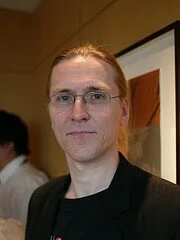
Image by gohsuket via Flickr
Amidst the increasingly prevalent hacking attacks that are occurring around the globe, will we ever be able to enjoy a “safe” Internet?
Mikko Hypponen, a computer security expert, argues that new security measures that improve coordination between international law enforcement groups are needed to limit the spread of online criminal activity–or else.
“I’ve spent my life defending the net, and I do feel that if we don’t fight online crime, then we are running the risk of losing it all,” said Hypponen during his presentation at TEDGlobal, while displaying logos Facebook, Twitter, Google and other online services.
For example, Stuxnet, a computer virus that targets Siemens software systems, caught the attention of international security experts in 2010 when it was used to sabotage a nuclear reactor in Iran. With more and more critical infrastructure systems reliant on computers, from power grids to financial institutions, cybercrime has become not only a very lucrative profession, but also a major threat to individuals, companies and governments. Recognizing the increasing threat posed by cyber attacks, the White House recently outlined a global cybersecurity plan that, according to the White House, outlined “how we can come together to preserve the character of cyberspace and reduce the threats we face.”
“Everything is being run by computers…We have become very reliant on the Internet, on basic things like electricity, on computers working, and this really is something that creates completely new problems for us,” Hyponnen warned. “We must have some way of continuing to work, even if computers fail…It’s very basic stuff actually, thinking about continuity, thinking about backups, thinking about the things that actually matter.”
Hyponnen suggested that one solution would involve improving coordination between global law enforcement agencies. The White House’s cybersecurity plan also emphasized “extending collaboration” with foreign parties when it comes to investigating and prosecuting cybercrime. Other proposals for protecting critical infrastructure from online attacks have focused on establishing a separate “.secure” domain.
“We need more global, international law enforcement work to find online criminal gangs, who are making millions off their attacks,” said Hypponen during the conclusion of his talk. “Even more importantly, we have to find the people with the skills, but without the opportunities; and, give them the opportunities to use their skills for good.”
Source :- http://www.huffingtonpost.com
Related articles
- Stuxnet Mutants All Over The Web (twistedeconotwist.wordpress.com)
- Fighting viruses, defending the net: Mikko Hypponen on TED.com (ted.com)
- Choose your cyber weapon (theage.com.au)
- LulzSec Steals, Shares Logins in Latest Hack (pcworld.com)
- Hackers plant fake news to discredit security researchers (theregister.co.uk)
- Hacker crims plant fake news to discredit security researchers (go.theregister.com)




















